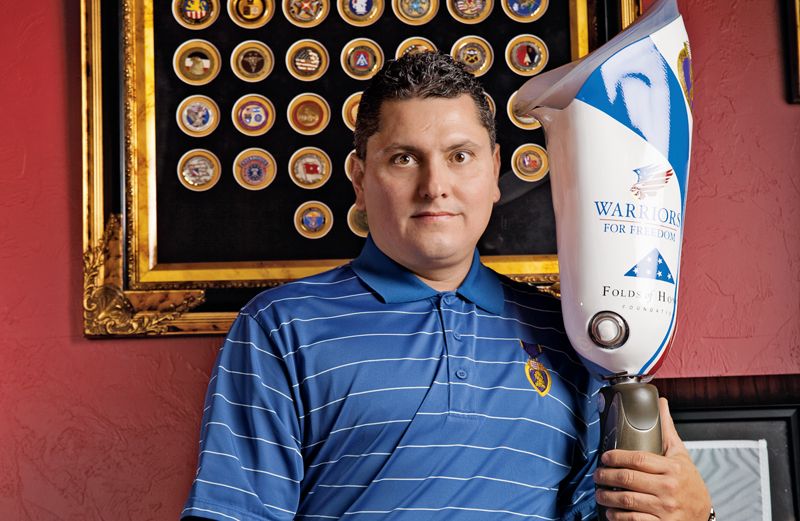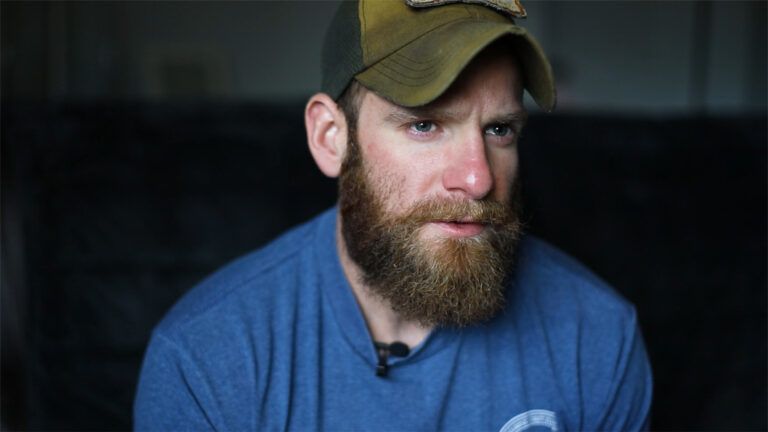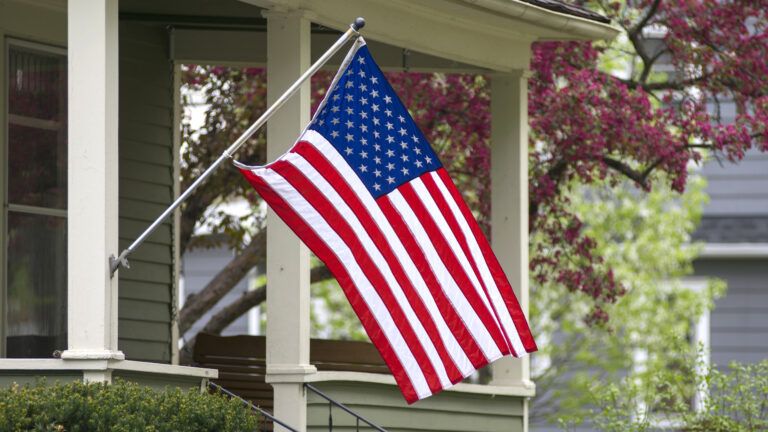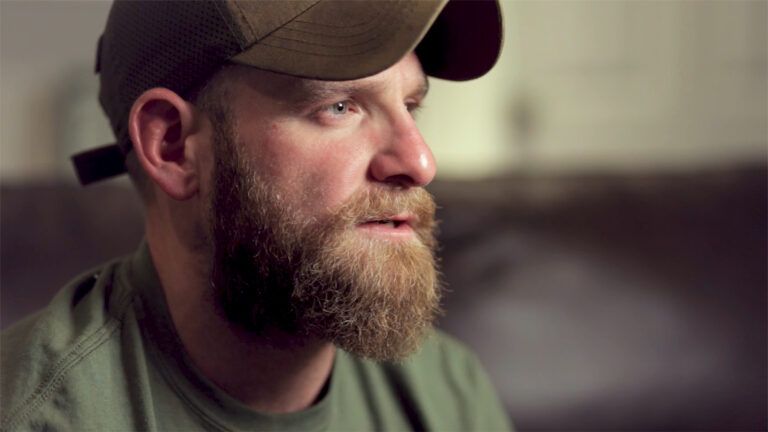Major Pulido, we can’t save your leg.” The surgeon’s words seemed to echo in my hospital room.
This was the fourth Army medical center I’d been transferred to since the explosion in Iraq. I’d had so many operations. Skin and bone grafts. Surgeries to repair my abdominal wounds, my left arm and hip. My shattered left leg. It wouldn’t heal. But why were the doctors giving up?
I’d gone into the military willing to sacrifice for our country, to give my life even, for a higher purpose. But I wasn’t ready for this. To be crippled at 36. I couldn’t do that to my wife, Karen, and our daughter, Kaitlin, only three. I was supposed to provide for my family, not be a burden.
That was how I’d been raised. To my parents, especially my father, there was only one honor higher than serving your family: serving your country.
Papi immigrated to the United States from Colombia. He cherished the freedoms he found here and was so proud to be an American. He’d joined the Army in 1970 and served for 30 years.
I would spit-shine Papi’s boots for my allowance. He taught me to polish them until I could see my reflection: thick, wavy hair, intense dark eyes. I looked just like him.
Saturday mornings he’d tell me stories about the Army–the camaraderie, the sacred bond between soldiers. “You never leave a man behind,” he said.
Sometimes in the news there’d be stories about vets who couldn’t get the services they required and ended up on the streets. “That’s not right,” he’d say. What was happening to me wasn’t right either.
The surgeon put his hand on my shoulder. “We’ll operate on the leg in the morning,” he said. “Before it’s too late.”
It was already too late. Life as I knew it was over. Ended by a roadside bomb six weeks earlier on a desert highway in Iraq. August 17, 2004.
I was driving an SUV in a convoy traveling to the Kirkush Military Training Base, my commanding officer in the seat next to me. This was my third deployment in my 16 years with the active-duty Army and Army Reserve.
Back home in Oklahoma I worked for the United Way, but when duty called I answered. With pride, just as my father had. My mission was to train Iraqi soldiers, a difficult but critical job.
We were cruising through the desert on a two-lane road. I had my left hand on the steering wheel, the barrel of my M-16 pointed out the driver’s-side window. My finger on the trigger. Up ahead I saw where the edge of the asphalt looked like it had been torn. Possible IED…gotta…
BOOM! Our SUV careered forward, the hood in flames. My head banged against the roof. Shrapnel rained down, biting into my flesh. My left leg, hip and arm. My abdomen.
The air bag went off, driving shards of glass and shrapnel deep into my skin. A searing pain shot up my leg. From the waist down my body felt like it was on fire.
“You okay, man?” My CO. His voice sounded far away.
I couldn’t move. I forced my gaze down. My body was covered in blood. Bone protruded from my left knee.
I remember choking on the fumes of diesel and burning rubber. Being pulled from the wreckage. A chopper took me to the 31st Combat Hospital in Baghdad. Surgeons operated on my leg for 17 hours.
More operations followed, at military hospitals in Germany; Washington, D.C.; and now here in San Antonio, at Brooke Army Medical Center, where I’d been for the past month. Karen and Mama had stayed with me ever since I came back.
Mama was a certified nurse assistant. She’d insisted on taking care of me and no one was going to argue with her. In her own quiet way Mama was just as tough as Papi. Maybe tougher.
Every day, when the mail was delivered, she’d read me the cards that friends and colleagues had sent. Then she taped them to the wall right across from my bed. On the front of one card was a beautiful depiction of Jesus. Mama held it up for me to see.
“Look, Eddie,” she said. “Just like we have at home. We’re praying, and all these people, they’re praying for you too. Jesus is with you.” I barely heard her. I was lost in my own private hell.
Click here to donate gift subscriptions to Guideposts Military Subscription Program.
Now I looked down at my body. I’d gone from a muscular 195 pounds to 118. And tomorrow they were going to amputate my leg. There’d be nothing left of me.
That night I tossed and turned, my fears metastasizing by the hour. How will I support my family? I don’t want to drag Karen down with me. I should tell her she’d be better off without me. And my little girl. Kaitlin. She’ll be afraid of me.
I was almost relieved to be wheeled into the O.R. and have the anesthesiologist put me under. I came to in the recovery room. Karen, Mama and Papi were there. “You’re alive, Eddie,” Mama whispered. “Thank the Lord.”
Papi squeezed my hand. “We’re here for you, son,” he said. “Whatever you need.”
I smiled, my mind still foggy from the anesthesia. Then I remembered. My leg. It was gone. I fought back tears. Put on a brave face. I didn’t want their pity.
During visiting hours, when my family was with me, I tried to act upbeat and positive. But at night I lay in my hospital bed, alone with my despair. I’d never be fit for duty again. Fit for anything.
I felt lost. Abandoned. Left behind like those Vietnam vets my father and I used to talk about. Other vets I’d known who had struggled to find their way. Injured vets in this very hospital whom no one ever came to visit.
Maybe that was the reality of being a vet. Maybe it was only the lucky few who weren’t left behind.
One night, after the nurse had made her rounds, I looked over at the IV bags, the tubes that pumped antibiotics, pain meds, nutrients into my bloodstream. Everything that was keeping me alive. But for what? I should just end it. Pull out the lines. Get it over with.
My eyes moved slowly down my body, past my hips and thighs. A blanket covered the bottom of the bed, where my leg should have been. Slowly, my hand trembling, I slid the blanket to the side, then the sheet underneath.
There was nothing but a stump. A thick bandage wrapped tightly around my mid-thigh. I squeezed my eyes shut. I couldn’t take it. I couldn’t live like this.
Take charge. I opened my eyes, reached for the tubes, wrapped my fingers around them.
One tug and you’re done. I couldn’t look. I turned my head. There on the wall, staring back at me, was the face of Jesus, almost illuminated in the gloom. His picture was surrounded by cards, hundreds of them.
They filled the entire wall. Every card sent by someone who cared. Someone who was pulling for me. Praying for me. An entire battalion of people I could count on. People the Lord had put into my life to help me, to love me, to give me strength.
I pulled my hand away from the tubes. Lord, forgive me, I prayed. I was so close to abandoning the life you’ve given me. But you have not left me. I know that now. You are here. I drifted off to sleep, the best rest I’d had since the explosion.
When I awoke, Mama and Karen were there. Mama took my hand, her face serious, as if she somehow knew how close I’d come to ending my life. “Eddie, you have a choice to make,” she said. “You can stay in this bed and grieve over your lost leg or you can get up and walk.”
The next day two physical therapists lifted me out of bed and guided me to a walker. I clung to it, my arms shaking. Slowly, I shifted the walker a few inches forward. I lifted my good leg ever so slightly and took a step. One tiny step. But it felt as if I’d crossed over a huge chasm.
Going back and forth to physical therapy I looked into the rooms of other patients. Too many of them were all alone, no visitors. That’s not right. They needed to know that someone cared about them. That there was someone who understood what they were going through.
What Papi told me about his Army days came back to me. You never leave a man behind. Here was a way for me to serve. I would do everything in my power to make sure no veteran was left behind.
I volunteered as a peer counselor in a program sponsored by the Amputee Coalition of America. Sharing my story, listening to the other vets, gave me the strength I needed to face my own challenges.
I left Brooke, after almost a year, with a state-of-the-art prosthesis. Karen and I made the eight-hour drive home to Oklahoma. When we turned up our street, I could hardly believe my eyes. The entire front lawn was planted with American flags.
Back at the United Way I switched the focus of my work to veterans’ needs. I heard from vets who couldn’t get services, people falling through the cracks. I started my own nonprofit group, Warriors for Freedom, to help struggling veterans and their families with mental-health issues.
Now I work full time for Folds of Honor, an organization that provides educational assistance and college scholarships to soldiers’ families. I have a new purpose, serving the brave men and women who have served our country. I can think of no higher honor than that.
Bring faith and inspiration to our troops! To donate a Guideposts subscription now, click here.







